- Details
- Written by: Kamran Mofid
- Hits: 1847
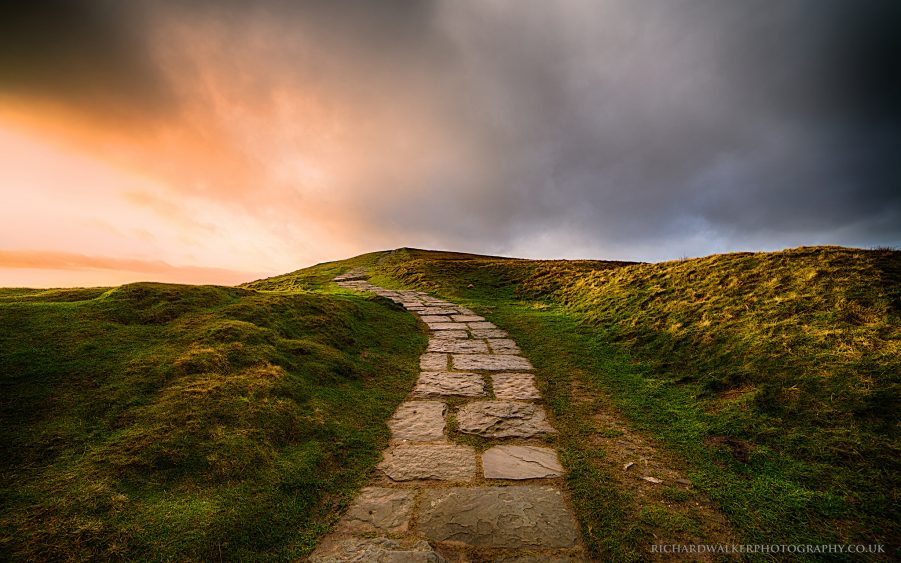
Stairway to Heaven? The path leading to Mam Tor in the Peak District. Photo Richard Walker
The other evening (8 June 2019) I was very lucky. Just before 10.00pm, I began flicking through our T.V. channels. I hit the jackpot and I stopped at BBC4. Wow! What I discovered! I could not stop watching. I loved every bit of it. And this is why I am now posting this Blog. Hope you love it too.
In Search of Arcadia, 8 June 2019 BBC4 (First broadcast Wed 9 Aug 2017 BBC4)
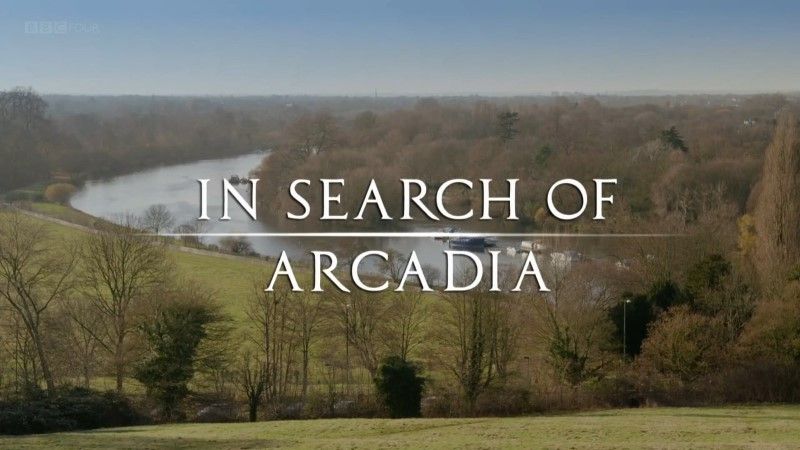
Dr Janina Ramirez goes 'In Search of Arcadia' discovering the origins of the English landscape movement in a 12-mile stretch of the Thames between Hampton and Chiswick with waterman and historian John Bailey. In the early 18th century this stretch of the river was home to a group of writers, poets, artists and garden designers who were inspired by classical landscapes of antiquity and the ancient idea of Arcadia.
Janina discovers the people and the ideas at the heart of this transformative movement and the landscape of the Thames - Nicholas Poussin's painting Et in Arcadia Ego, the French formal gardens at Hampton Court, Pope's Grotto, Marble Hill House, Chiswick House, Syon Meadows and finally the view from Richmond Hill. John unpacks the role the River Thames played in their story as he explores the natural riches of its shores. He has time for fishing and contemplation along the way with his guide - Izaak Walton's Compleat Angler...Continue to read
Watch the Video: In Search of Arcadia, 8 June 2019 BBC4 (First broadcast Wed 9 Aug 2017 BBC4)
Who was Izaak Walton (c. 1593- 15 December 1683)?
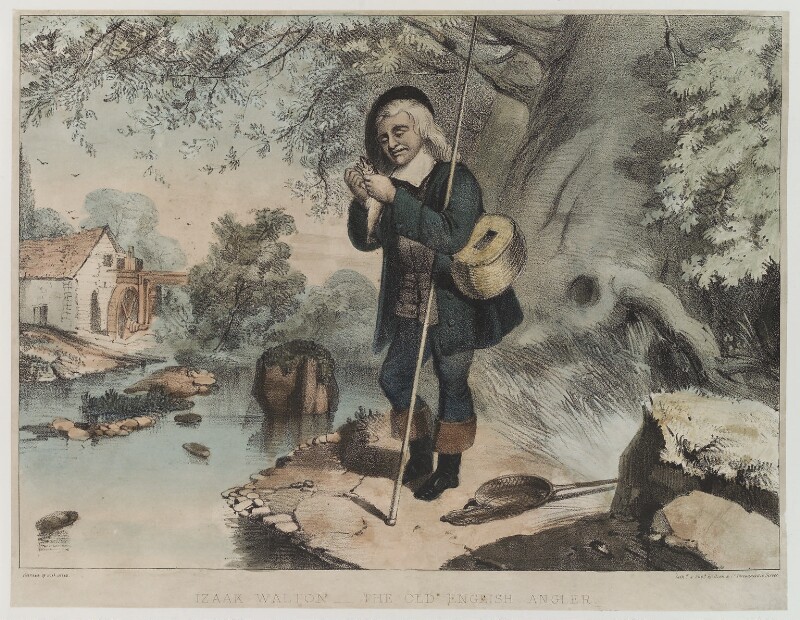
'Izaak Walton - the old English angler', by and published by Dean & Co
hand-coloured lithograph, published circa 1849-1855. National Portrait Gallery, London
This is how he is remembered on his epitaph at Prior Silkstede’s Chapel in Winchester Cathedral
Here resteth the Body of
Mr. ISAAC WALTON
Who dyed the 15th day of December 1683
Alas he's gone before
Gone to return no more!
Our panting Breasts aspire
After their aged Sire,
Whose well spent life did last,
Full ninety years and past
But now he hath begun
That which will ne're be done
Crown'd with eternall blysse:
We wish our souls with his.
Votis modestis sic flerunt liberi ( ‘This modest prayer his weeping children lament’)
Study to Be Quiet, this was Izaak Walton’s favourite Bible text, captured perfectly in the window at Winchester Cathedral
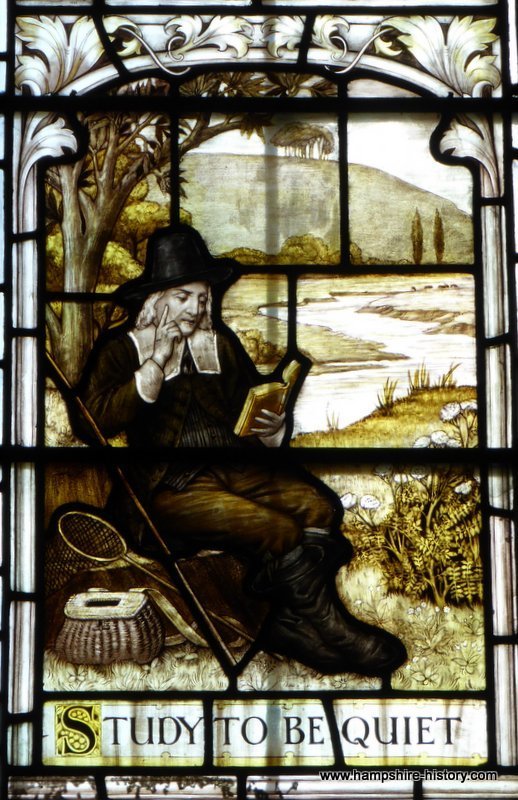
Izaak Walton sitting by the River Itchen with St Catherine’s Hill behind.
Izaak, Isaak or Issac? There is often a difference of opinion regarding the spelling of the name Izaak Walton. There are three widely used spellings of his name all often seen in print before the turn of the 19th Century: ‘Isaac Walton’, ‘Izaac Walton’ and ‘Isaak Walton’. Subsequently ‘Izaak Walton’ became the more popular spelling in the late 20th Century. The original ‘old English’ spelling is deemed to be Isaac Walton and is indicated by his epitaph which was noted above.
It was in 1653 that Izaak wrote the book that was destined to become one of the most loved and reprinted books in the English language. The Compleat Angler is of course a book on fishing but it is also a window in to seventeenth-century country life.
Two years later Walton purchased Halfhead Farm in Shallowford, five miles from Stafford. This property remained in his possession for the rest of his life and today its half-timbered cottage serves as a museum commemorating its famous owner.
The restoration of the monarchy in 1660 brought new role for Izaak. Bishop George Morley appointed him as his steward initially at Worcester and later at Winchester. It was at Winchester that Walton died in 1683 at the great age of 90...Read more about Izaak Walton
Izaak Walton’s The Compleat Angler: An Introduction to Liberal Arts
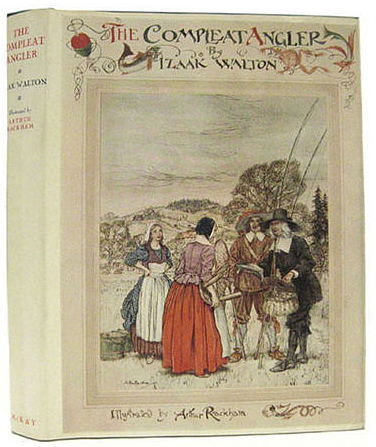
“Without the healthy balance of work and play, melancholy oppresses the human spirit, the capacity for joy diminishes, and a person loses a child’s sense of wonder and adventure. Angling educates a person to enjoy all of life: the beauty of the meadows and streams, the pure delight of a favorite sport, the mirth and conviviality of friendship, the pleasure of contemplation in beholding the handiwork of God’s Providence, and the lightheartedness of laughter and humor that proclaim “Taste and see the sweetness of the Lord.”
Read more about Izaak Walton’s The Compleat Angler
In Search of Arcadia (BBC 4): A Review by Camilla Allen, University of Sheffield
‘In Search of Arcadia, presented by the historian Dr Janina Ramirez, was commissioned by the BBC as part of its ‘Utopia’ season; programmes exploring the enduring appeal of a concept which evokes for many a more perfect and idealized reality than the one they inhabit. The documentaries explored different aspects of utopian thought and its manifestation in culture, art and architecture, with the work of Frank Lloyd Wright and the city planning of Milton Keynes being just two twentieth-century manifestations. Yet it was the Thames which took centre stage in Ramirez’s film, often outshining its co-stars. The twelve-mile section of the river from Chiswick to Hampton Court, and its surviving eighteenth-century palaces, gardens and landscapes, were explored in relation to the Enlightenment fascination with Arcadia, and the mark which that fascination had on the landscape and enduring culture.
Co-presented by waterman and historian John Bailey, In Search of Arcadia sought out the chronology which took English garden culture from the imported formal Baroque gardens of places like Hampton Court, to the picturesque style of the English Landscape school of Lancelot ‘Capability’ Brown. A whole host of characters were introduced to viewers, including Lord Burlington, William Kent and Henrietta Howard, and beginning with the Anglican writer Izaak Walton, author of the ever-popular fishing manual The Compleat Angler. Walton’s work, alongside Nicholas Poussin’s painting Et in Arcadia Ego, is emblematic of the ushering in of a period when the most forward thinking and fashionable minds of the day sought to manifest around them a pastoral idyll, harking back to classical antiquity.
Walton’s powerful assertion of a much-needed balance between man and nature might well have come into being as a response to the collective trauma that England had suffered during the Civil War and the religious tensions which defined society up to, and into, the Restoration; The Compleat Angler demonstrates Walton’s faith, expressed through a love of nature, and as an antidote to a competitive and greedy urbanizing world. Complementing that vision, Poussin’s painting of four shepherds gathered around a tomb and framed by an idealized bucolic landscape, presents as a visual manifestation of Arcadia; a classical utopia where people were in harmony with nature. Yet Walton’s ideals and the yearning for some mystical past were not at that point reflected in the gardens of the day.
Sir Christopher Wren’s intentions for the gardens of Hampton Court Palace couldn’t be more at odds with the pastoral Arcadian idyll: composed from a palette of clipped box, yew and grass; unchanged by the seasons, and trumpeting regal authority and power. But majestic gardens were not immune from satire, and an emerging generation of writers, thinkers and designers saw in these green columns, cones and patterns, an artifice and fussiness at odds with the enduring beauty of the ancient world. A philosophy which – when applied to gardens – became a synthesis of art, literature and form, allowing nature to breathe anew. At the forefront of this movement was the poet and social dynamo Alexander Pope, a man who used his writing as a medium of creation for an idealized vision of the Thames; a vision bought into reality in the form of gardens and landscapes, straddling the banks of the river, many of which endure today in the west of London.
The hour-long film delights in the beauty and charisma of the persons, portraits and landscapes which are its subject. Filmed in the winter, the bare branches of the trees hang languidly over the Thames as the two presenters use the river as a means of travelling between the houses, inns and palaces inhabited by Pope, Burlington, Howard and others. Modern-day efforts to restore and preserve these historic landscapes were also featured. The work of volunteers clearing the remaining radial avenues which linked properties like Ham House with Pope’s home in Twickenham demonstrated the presence that these landscape forms still hold in the area: using traditional methods for their ecologically sympathetic results, these long routes will, in the future, demonstrate some of the significant views and vistas which were so important in these early English Landscape gardens. And the grand presence of Sir David Attenborough was called upon to champion the august aims of the Thames Landscape Strategy, a group who promote this area of London as the ‘Arcadian Thames’.
For anyone familiar with the concepts and figures featured in In Search of Arcadia, one of the true gifts of it as a study is the footage which sweeps through the remaining gardens and landscapes: Lord Burlington’s formal statutory blending into the naturalistic sweep of his lawn and tree planting and Lancelot Brown’s classic design of Syon House. But the ultimate realization of the utopian ideal of a world in harmony in landscape is most manifest in Syon House, captured in beautiful aerial shots which showcase its stretch of the only remaining natural river bank in Greater London, a waterline still able to respond to the Thames’ ebb and flow. And that peace and harmony results in beautiful flooded meadows, reflecting the trees and rough vegetation along the water’s edge in a temporal mirror to the sky. Nature not subordinate, but present and powerful – and beautifully captured in the film.’
Discover more about nature
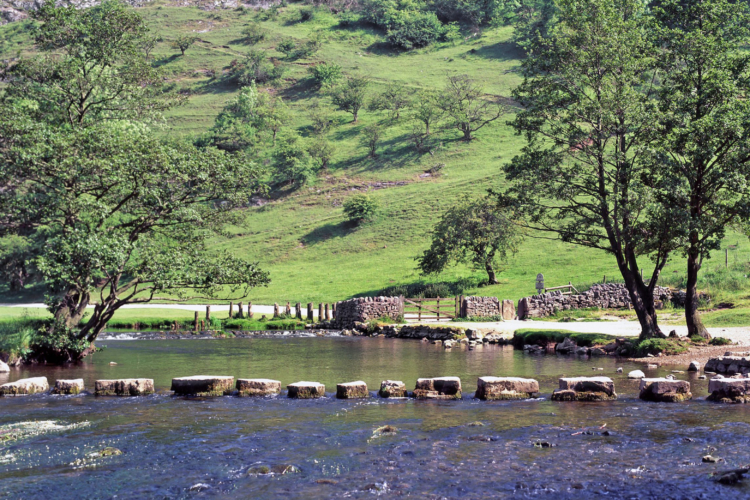
Dovedale Walk - Stepping Stones, below "Dovedale Castle", Peak District National Park. flickr.com
“Be like the sun for grace and mercy.
Be like the night to cover others’ faults.
Be like running water for generosity.
Be like death for rage and anger.
Be like the Earth for modesty.
Appear as you are.
Be as you appear.”-Rumi
Desperately seeking Sophia: The Wisdom of Nature
Nature heals, Nature soothes, Nature restores, Nature connects: Yes, Nature is what makes us Human!
'Come forth into the light of things, Let Nature be your teacher'
Nature and Simple Living is a Blissful Life
How nature helps us feel good and do good
In search of beauty, wisdom and love? Then, come, come, whoever you are come
......
PS: Remembering our our own Dovedale Walks - Stepping Stones,
staying at the loveliest Izaak Walton Hotel
My wife and I have wonderful memories of our travels to this most beautiful location in Derbyshire, staying at this lovely hotel in the heart of Dovedale.
We took many walks, celebrating, admiring and thoroughly enjoying the gifts of Mother Nature.
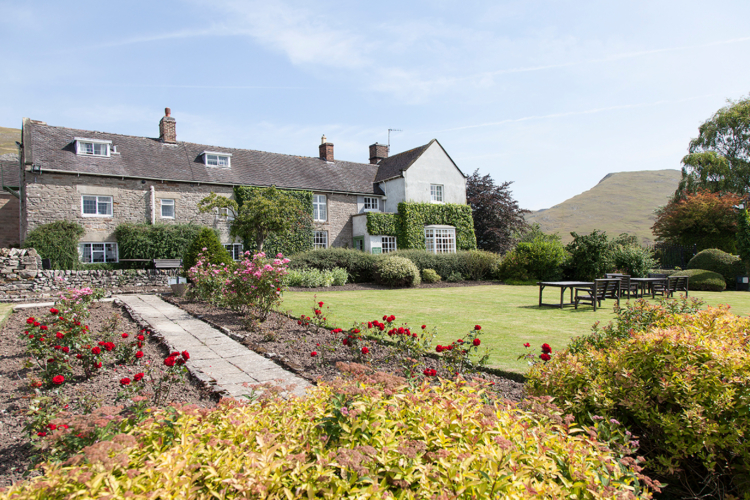
Photo: Izaak Walton Hotel
- Details
- Written by: Kamran Mofid
- Hits: 30915
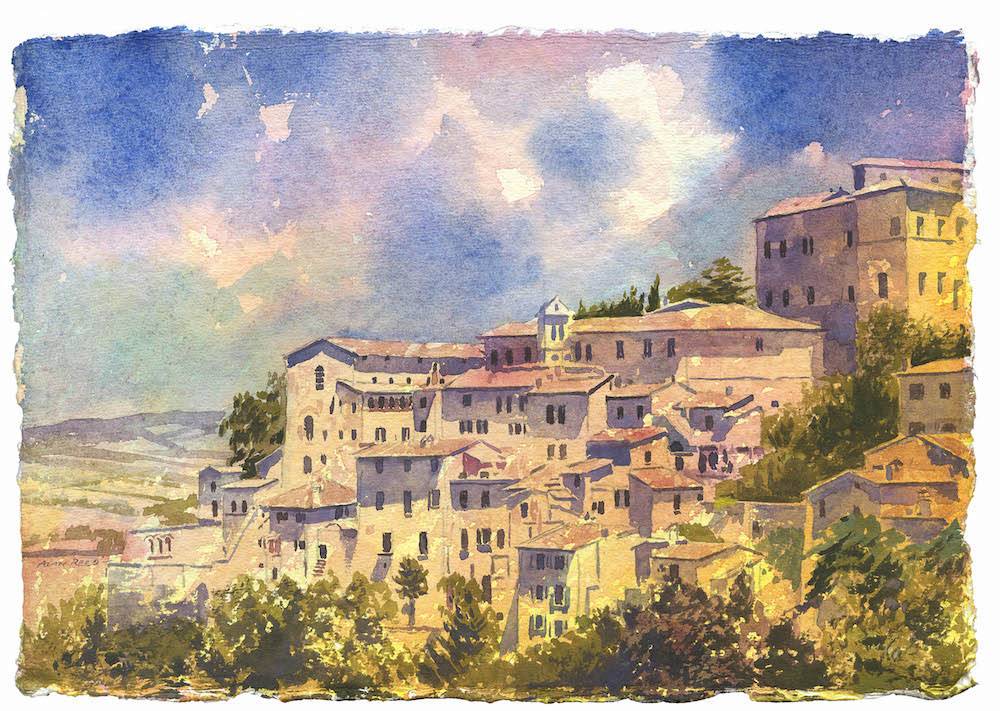
Todi, an original watercolour painting on hand made paper by Alan Reed. alanreed.com
Cortona Week in Todi, 22-29 June 2019 – Being Human in a Technological World
A programme to foster a new class of world leaders
An inspiring interdisciplinary week in the heart of Italian Renaissance
An immersion in the complexity of today's world
A Reflection by Kamran Mofid
O You Who’ve gone on Pilgrimage
Come, Come, Whoever You Are, Come
Ours is not a caravan of despair.
Ours is a Journey of Hope
What You Seek Is Seeking You ~ Rumi
In a world of spiraling ecological, socio-political, technological and economic crises, where does one find hope and wisdom?
Where can we search for and discover our spiritual calling and be one with the world and with each other?
We came to Todi in search of possible answers and we discovered them with joy and gratitude at Todi- Week 2019
To understand, appreciate, and face the challenges of the contemporary world requires us to focus on life’s big picture. Whether it is war and peace, economics and the environment, justice and injustice, love and hatred, mindlessness and mindfulness, arrogance and humility, cooperation and competition, common good and selfishness, science and technology, progress and poverty, profit and loss, food and population, energy and water, disease and health, hope and hopelessness, friendship and loneliness, happiness and sadness, education and family, we need the big picture in order to understand and solve the many pressing problems, large and small, regional or global.
The “Big Picture” is also the context in which we can most productively explore the big perennial questions of life - purpose and meaning, virtues and values.
In order to focus on life’s bigger picture, we came together at Todi with hope and determination for dialogue, conversation, listening to one another, sharing ideas and visions, enabling and empowering each other, so that we may be able to see, discover and paint the ‘Big Picture’, carving an everlasting sculpture of beauty and wisdom.
And, yes, we were not disappointed. We rose to this big challenge at our Todi-Week 2019.
Once again, the Chairman of The Cortona Friends Association, Prof. Pier Luigi Luisi, and his superb and committed team of volunteers, succeeded in spectacular fashion, in bringing together a wonderfully eclectic mix of speakers, workshop leaders, delegates and participants, binding us together in a common purpose and vision. The quality of the presentations was richly broad and penetratingly deep. Various speakers discussed the need for connection and relationships, and how consumerism and materialism were misplaced attempts to find what we really need, ‘Values and Spiritual Wisdom’, which we are starved of in the global economic market system.
We engaged with each other with big questions of life, questions, such as: Who are we? Where have we come from ? Where are we going to? What is the purpose of this journey we call life? What it means to be human?
At our Todi-Week 2019, we were once again able to reaffirm our values and commitment to share a common belief in the potential of each one of us to become self-directed, empowered, and active in defining this time in the world as an opportunity for positive change and healing and for the true formation of a culture of peace by giving thanks, spreading joy, sharing love, seeing miracles, discovering goodness, embracing kindness, practicing patience, teaching tolerance, encouraging laughter, celebrating diversity, showing compassion, turning from hatred, practicing forgiveness, peacefully resolving conflicts, communicating non-violently, choosing happiness and enjoying life.
This year, we once again, found unity with one another, we found connection. We found it in our search for truth and in our hopes to build a better world in ways both large and small. We listened intently to each other’s presentations. We engaged in dialogue during the formal sessions, and again more informally as we ate together and shared perspectives. What we hope for the world, we found in a special way, this year, at our inspiring and rewarding Todi- Week.
The Conference brought together over 100 participants to celebrate, appreciate, and discuss the importance of ‘Being Human in a Technological World’. The participants came from many walks of life, many countries, diverse ethnicities, and different spiritual, philosophical, and religious perspectives. They also came from a wide breadth of both academic disciplines and career paths. Many were teachers and professors, students and PhD candidates, some were entrepreneurs, social and business, some were highly accomplished musicians and artists, calligraphers, sculptors and drummers, others were gifted spiritual, political, and community leaders, to name but a few. All were united by a desire to make this world we live in a more just, more equal, more ecological, and more relational. For it is in relationships with one another and in our relationships with the earth and all the web of life that human beings find happiness, peace and purpose.
Until we meet again at the next Todi-Week Conference, let us remain a Community in our hearts as we work together, not alone, in spirit to build a better world, just as we did, at this year's Conference, by enjoying life and giving thanks for all the gifts we have received.
Watch the Conference Videos here
Watch the Video Celebrating the Joy of Beauty, Happiness and Friendship
And now I want to conclude my reflection, by recalling the beautiful and inspiring words of William Stafford, American poet and pacifist:
“A Valley Like This”
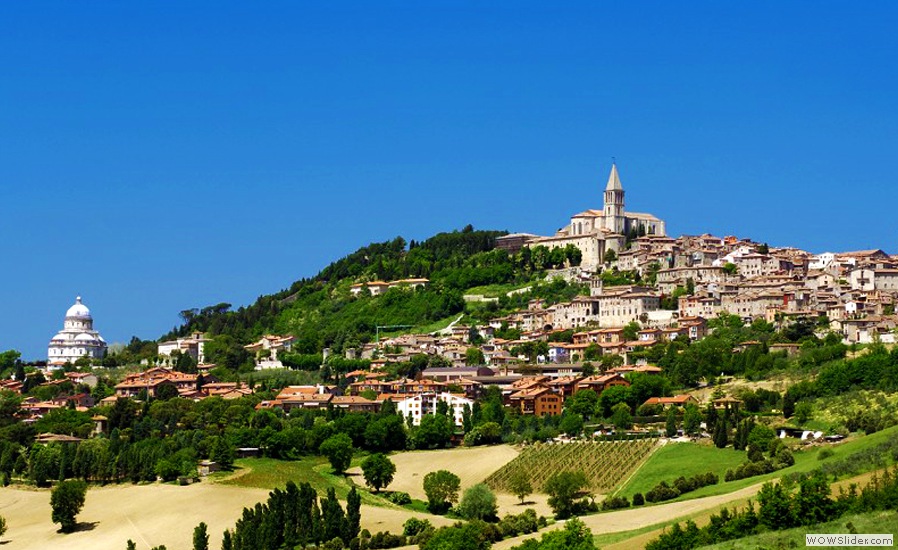
Photo:umbriadomus.com
Sometimes you look at an empty valley like this,
and suddenly the air is filled with snow.
That is the way the whole world happened —
there was nothing, and then…
But maybe some time you will look out and even
the mountains are gone, the world become nothing
again. What can a person do to help
bring back the world?
We have to watch it and then look at each other.
Together we hold it close and carefully
save it, like a bubble that can disappear
if we don’t watch out.
Please think about this as you go on. Breathe on the world.
Hold out your hands to it. When mornings and evenings
roll along, watch how they open and close, how they
invite you to the long party that your life is.
- Details
- Written by: Kamran Mofid
- Hits: 3565
The remarkable characteristic of our chaotic and crisis riddled world today is their deepening and continuity
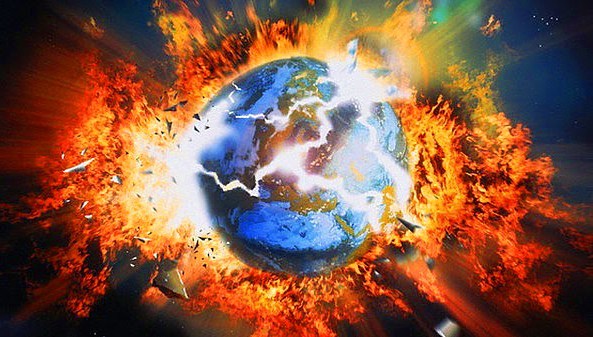
Photo:outerlimitsradio.com
Crisis after Crisis: Financial Crisis. Credit and Banking Crisis. Environmental and Ecological Crisis. Biodiversity Crisis. Housing Crisis. Health and Well-being Crisis. Education Crisis. Spiritual and Moral Crisis. Trust and Trusting Crisis. Indifference Crisis. Fake, Fake News and Faking Crisis. Reality Crisis. Populism and Fascism Crisis,...all of them leading ours to be a generalized "time of crisis."
The pertinent question at this time of crisis must surely be: When and how on earth are we, the people, the citizens, going to rise and challenge the underlying causes of crisis by saying enough is enough. I am not going to be fooled anymore. I am going to challenge the system and the so-called leaders that for so long have abused me, lied to me, cheated me, humiliated me and have brought me such a bitter harvest.
Here and now, in this short piece, rooting my argument in common sense and everyday reality, I am setting up my stall by saying it loud and clear, once and for all, that, the main culprit for this ugly rise in crisis of all sorts is the global rise in values-less, meaningless, nonsensical education. Wherever you go, the same nonsense is on offer!
This is my first charge. The second charge, that follows from the first, is the accompanying rise in the narcissistic and egoistic elites, worldwide, who are undermining the common good; which constitutes the very essence of any society or nation.
The third charge that neatly follows the first two, is that, all in all, by and large, the citizens have now become the spitting image of the narcissistic leaders, deflecting their attention from a much needed social critique.
This process can and must be reversed. But first we need to weigh the moral obligations of citizenship and carefully consider how we relate to honour, shame, patriotism, nationalism, trust, beauty, wisdom, truth, and the meaning of leadership. In the final part, below, I will shed some light on how this might be possible.
Education to Better the World
In the wise words of Irina Bokova Director-General of UNESCO, ‘There is no more powerful transformative force than education – to promote human rights and dignity, to eradicate poverty and deepen sustainability, to build a better future for all, founded on equal rights and social justice, respect for cultural diversity, and international solidarity and shared responsibility, all of which are fundamental aspects of our common humanity.’
This is why, as I have been saying for a long time now, that we must begin to think big again, by focusing our minds on the big questions of life, and re-vision education in a changing world. For this, we need debate and dialogue across the board, and that is the goal of this Blog – to be both aspirational and inspirational, to speak to new times, to be a voice of hope and possibilities.
Mind before Matter: Debunking the Myth of Education
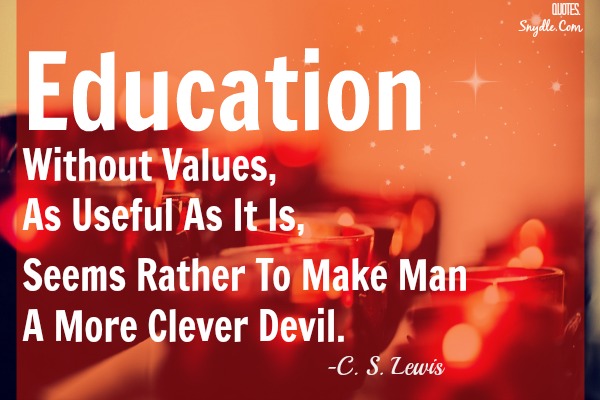
Many prophets, sages and scriptures have reminded us that "in the beginning" was the divine Mind, from which comes the universe of time and space in a Big Bang, and it is always there underlying all that is, including our own consciousness, but we have to mindfully notice its whispers and winks as we move through our lives.
This is My Charge Sheet
Our education system by and large has failed us all, with hugely tragic consequences. When education is designed, controlled and implemented by narcissistic political and business elites, who have become prisoners of a reckless ideology-neoliberalism- drunk on market values and market forces, all morally and spiritually objectionable and intellectually bankrupt, when education is not for the pursuit of wisdom, virtues and beauty, when students are called customers, and education becomes a commodity, when universities become service providers and centres of business, trading in “commodities” buying them cheap and selling them to the highest bidders, when teaching is not a vocation, when learning is not a sacrament, when education is all about the rankings and targets, when it all becomes about running low quality courses, with no heart, spirit and meaning, just to get ‘bums on seats’, taught by stressed, fatigued, overworked and not-valued faculty, when it is all about delivery at the lowest possible costs, and exam results are hugely inflated, to keep the customers happy and not complaining; then, we have opened the doors to the destruction of all that makes life good and worthwhile.
In due course, the consumerist citizens, now fully materialistic and not able to find the happiness that was promised them via consumption and shopping, they become fearful, insecure, hopeless, helpless, frustrated, angry and in despair. The popular culture, the social media become a pithy substitute for real life. Virtual friends, overtake the real friends and comradeship. Trivia and amusement supplant substance and meaning. The citizen becomes sinister and complacent, easy prey, prone to acts of indifference, voting against their own self interest, allowing caricatures to lead them, making decisions for them, deflecting their attention from a much needed social critique; from questions of substance. Questions, like what it means to be a human? What is the purpose of this journey we call life? How can I lead a meaningful and worthwhile life?
All in all, the citizens then become the spitting image of the narcissistic leaders, and all is lost.
This, in a nutshell, is the tragedy of our time, and nothing, but a sea change, a moral and spiritual revolution in our education system, model and values, can bring the vital changes we need to reverse the bad with goodness, ugliness with beauty, to enable and empower us to build a better world, many of us are hoping and dreaming for. Carpe Diem!
Debunking the Myth of Leaders and Leadership
Our Narcissistic and Egoistic Elites Undermining the Common Good
Like the ancient Greek myth of a beautiful youth Narcissus, who died through falling in love with his own image, today, our elites too, are in love with themselves, incapable of empathy, unable to relate to and totally unaware of other people’s needs, or even their existence…Selfish and individualistic, they are devoid of any humanity, altruism, kindness, compassion or a sense of justice. They show no remorse for their destructive actions. They destroy the common good and create a society based on fear, anxiety and hatred. ‘The re-modelling of the public organisations as ‘efficient’ (read flexible and dispensable) business units, the widespread privatisation of the Commons and the diminution of the value of the public good are just a few of the means by which this has been achieved.’
Now, the biggest question of them all: What is to be done?
We must transform our lives and values to save ourselves
Without a Better Education, a Better World is not Possible
Rethinking Education
A Path to Rediscovering the Common Good in Values-led Education

Holding Hands for the Common Good
The principle of seeking the common good states that “individual rights are always experienced within the context of promotion of the common good. The common good is about respecting the rights and responsibilities of all people. The individual does not have unfettered rights at the expense of others, but nor are individual rights to be subordinated to the needs of the group.”-Photo:nellathink.com
In a nutshell, the world today is at a crossroads. We live in a world that promotes working for our own ends, but if we are to survive and flourish it is time to start sacrificing for the common good by working together, nurturing and nourishing our souls and minds, imagining a better life for all.
In Education and the Common Good: A Moral Philosophy of the Curriculum, Philip Phenix outlines two types of democracy: the democracy of desire and the democracy of worth. He describes the first, desire, as the “highest good”, characterized by independence and autonomy. “Human beings are regarded as continually in pursuit of happiness,” he writes, “and the goal of this democracy is to help people as far as possible get what they want.”
The second type, democracy of worth, Phenix states, “[C]enters around devotion or loyalty to the good, the right, the true, the excellent. Devotion is different from desire. It is primarily other-regarding rather than self-interested. It invites sacrifice and loyalty instead of conferring gratification.”
Within the education for the common good, we have opportunities to work together out of sacrifice and love, when the ultimate duty is to prepare all citizens for a democracy of worth: community members devote themselves to providing all pupils and students the chance to reach their optimal potential. All are allowed to use their strengths and talents towards the common good. Democracy of worth is the ultimate goal, where the focus is on a love for all.
However, as I noted above, unfortunately, the current global education system is following the democracy of desire model, in which the pursuit of individual self is overriding the devotion to the good; where providers of education are encouraged to act like the free market, promoting competition as the vehicle to better serve students’ needs and priorities. This is not what a true education is all about. That’s not what learning is supposed to be. Learning is about working together to understand concepts, each other, and about finding our place to help each other., lifting each other up, helping to build a better and more harmonious and life for all.
Thus, our focus, our vision should involve a democracy where all are of worth; not a few, but the many, the all.
In the world today, it seems, we are in the midst of a moral and spiritual revolution that is about creating a democracy of value in which the central focus is love. The task is daunting, but when all of us come together and sacrifice part of ourselves for the common good, there is hope for everyone.
Let us come together for the common good. Let us not deny love to all our children and grandchildren. Our children and future generations deserve our devotion to the notion that education is a common good for all. Carpe Diem!
To read and reflect more on how to rediscover education for the common good, see below:
For the Common Good: Unleashing the Power of Passion & Purpose
A Path to a Spiritual Education for the Common Good: Education for a Just and Sustainable World
Are Universities still for the Common Good? No way! It’s all about Money, Money, and more Money!
Globalisation and Education for the Common Good: A Path to Sustainability, Well-being and Happiness
The Wisdom of "ubuntu": Giving and Sharing for the Common Good
Thanks, Danny Boyle, for Celebrating the Common Good
Quakerism and Economics of the Common Good
Beyond the Wasteland: Seven Common Good Steps to Build a Compassionate World
The rise in global fascism: A failure of education?
Britain today and the Bankruptcy of Ideas, Vision and Values-less Education
Brexit, Trump and the failure of our universities to pursue wisdom
A Reflection on Selfishness and Selfish Business Model
Private education, posh boys and the ruining of Britain:The Story Straight from the horse's mouth
Calling all academic economists: What are you teaching your students?
Economics and Economists Engulfed By Crises: What Do We Tell the Students?
The Journey to Sophia: Education for Wisdom
In this troubled world let the beauty of nature and simple life be our greatest teachers
Recession, Austerity, Mental, Emotional and Physical Illness
The Damning Impact of a Toxic Philosophy on America: The Tragedy of Ayn Rand
Mr Trump, we are not what we earn!(23 June 2017)
What might an Economy for the Common Good look like?
My Economics and Business Educators’ Oath: My Promise to My Students(27 June 2015)
